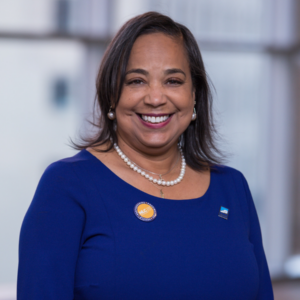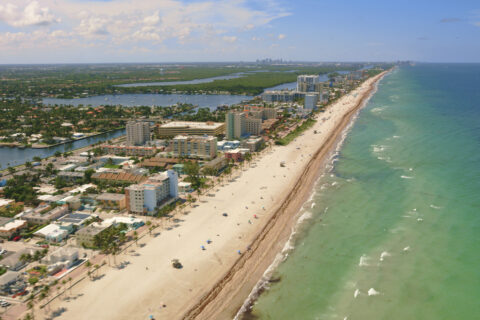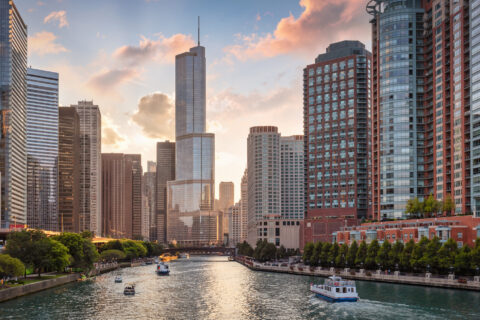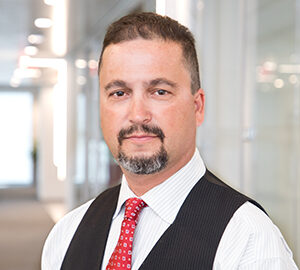The COVID-19 pandemic may have forced digital inequality into the national spotlight, but our bumpy economic recovery now underscores how much work remains. Unprecedented public and private sector investments in broadband connectivity are narrowing our digital divide, but one in four Americans are still unconnected at home.
Mayors see up close how these digital disparities drive social and economic inequality. Low-income households and families of color are less likely to have home broadband, leaving students cut off from online learning, patients cut off from telehealth, and entrepreneurs and small businesses cut off from online revenue opportunities.
Like most cities nationwide, Tacoma, Washington’s digital divide is not actually an infrastructure challenge: More than 99% of homes in our city have fast, modern broadband networks passing by their front door, and 98% have a choice of multiple providers.
But only 71% of Tacomans are signed up for wired broadband service.
Even as the federal Affordable Connectivity Program (ACP) removes cost as a barrier to home broadband for low-income households, one in five Tacomans don’t have a home computer, and many others struggle with poor digital skills that make it hard to appreciate the opportunities broadband connections unlock. Unconnected adults across Washington are twice as likely to cite a lack of need or interest, rather than the cost of service, as their main reason for not subscribing.
In Tacoma, we recognized early on that digital equity is a foundational challenge for our future – and that strong cooperation between the public, private, and non-profit sectors needs to be the North Star guiding our progress.
In 2011, I joined the Tacoma Housing Authority in helping Comcast launch its groundbreaking Internet Essentials program in our city; in the decade since, this public-private partnership has connected more than 21,000 households across Pierce County by combining low-cost internet service, heavily discounted computers, and a suite of free digital literacy training resources offered through a network of local non-profits.
In 2015, the Tacoma City Council built on these foundations by launching the City’s Digital Equity Program, establishing universal broadband access and digital literacy as our core goals.
Now, the federal Affordable Connectivity Program (ACP) gives Tacoma – and cities nationwide – an opportunity to make this vision a reality. More than 15,000 unconnected households in Tacoma are eligible for the ACP, which essentially makes home internet service free for low-income families via a $30 monthly benefit on participating $30/month high-speed plans.
But it’s going to take an all-out outreach campaign, coordinated closely with state officials and regional partners, to get eligible families enrolled and empowered with the basic digital skills needed to thrive online.
We’re proud to have such an effort underway in Tacoma, where city officials and private sector leaders like Comcast are empowering a range of community-serving non-profit partners with the funding, donated laptops, and connectivity needed to offer digital skills training and ACP enrollment outreach:
- The Boys & Girls Clubs of South Puget Sound are hosting WiFi-enabled Lift Zones, giving students a safe place to connect for homework and digital skills courses.
- The Thrive Tacoma Business Fund is training Digital Navigators – trusted community members trained to offer unconnected neighbors one-on-one support to overcome the hurdles to connectivity.
- Goodwill of the Olympic and Rainier Region’s Power Up initiative offers job training programs to grow Tacoma’s world-class digital workforce.
- TeamWrk – e-gaming innovator Marcel Cunningham’s foundation – is teaching teens the basics of digital content creation and other valuable 21st Century skills.
At the same time, the Washington State Broadband Office has invested more than $7 million to scale similar Digital Navigator programs statewide, funding community partners to train trusted guides who can help unconnected Washingtonians sign up for the ACP, find digital training resources, and acquire a connected device.
We do not need to start from scratch; with 48 million households nationwide eligible for free or deeply discounted broadband through the ACP, other cities should now borrow a page from Tacoma’s digital equity playbook. Local leadership has a critical role in bringing together the public, private, and non-profit sectors around a common vision – and directing resources to the broadband adoption and digital skills programs that move the needle on digital participation. With this roadmap, cities nationwide can join Tacoma in narrowing the digital divide and building a more equitable, more connected future.
NLC has several resources to help interested local leaders learn more:








